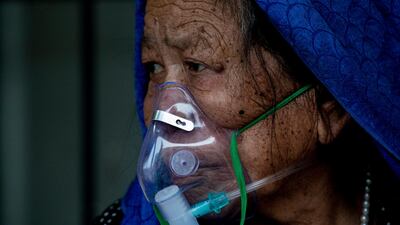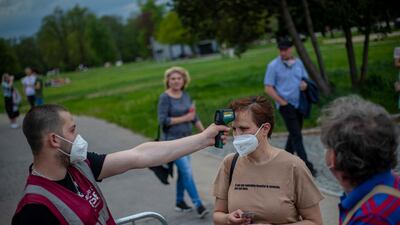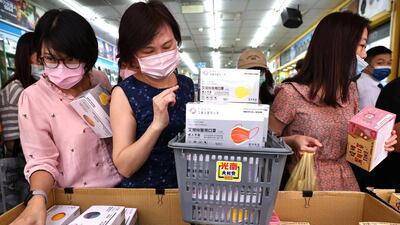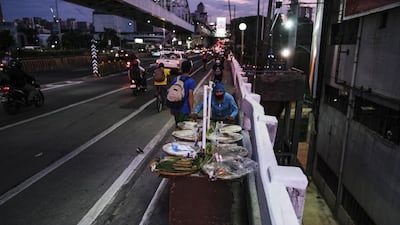An international panel investigating the global response to the Covid-19 pandemic led by the former Liberian president Ellen Sirleaf Johnson and New Zealand's former prime minister Helen Clark called for a "Chernobyl moment" in which an emergency UN summit gives beefed-up powers to the World Health Organisation to intervene against new diseases.
Describing February 2020 as a lost opportunity to avert a pandemic, the panel says in a report issued on Wednesday that the WHO could have first acted to raise the alarm as early as January 22. It wants world leaders to grant new powers to intervene in states where the risk of an outbreak is emerging.
"We propose that a special high level session of the UN General Assembly should be conveyed later in the year to agree on a political declaration on transforming and preparedness and response, along the lines of the recommendations in the panel's report. The panel believes that the WHO is underpowered and underfunded by its member states," Ms Clark said.
"The disease surveillance and alert system needs to be overhauled too. WHO should have the powers necessary to investigate outbreaks of concern speedily with guaranteed rights of access. And with the ability to publish information without waiting for member state approval.
"Sensitivities about sovereignty should surely not delay alerting the world to the threat of a new pathogen and pandemic potential. A precautionary principle should be applied where warranted, as in the face of respiratory infections. We are calling on the WHO to set measurable targets and benchmarks for pandemic preparedness and response professionals."
The Independent Panel for Pandemic Preparedness and Response was set up by the WHO to make recommendations on the handling of the outbreak and future reforms ahead of an annual UN meeting in late May. The former heads of government and experts said the global health bureaucracy needed to command more resources.
"The panel finds that the system as it stands now is clearly unfit to prevent another novel and highly infectious pathogen, which could emerge at any time, from developing into a pandemic," the report said.
"We are also proposing the creation of a dedicated international pandemic financing facility. It must be able to disperse $5-$10 billion a year for preparedness, and for $50-$100 billion in the process."
The panel drew parallels with the reaction to the nuclear disaster in Ukraine in 1986 because of which the UN body was given a substantial new remit.
"If we see this as the Chernobyl moment of global health, and then related it to the new powers that the International Atomic Energy Agency got at the time of that nuclear safety disaster then we see that the WHO needs the kinds of powers that we are spelling out," Ms Clark said. "The challenge to member states today in 2021 will be will they agree to empower the agency just as, in the dying days of the Cold War, they agreed to empower the IAEA."
Ellen Johnson Sirleaf, the former president of Liberia, said the Covid pandemic is still accelerating and the first priority must be to stop the spread. With more than four fifths of vaccines going to the wealthiest countries, better global distribution of batches is key. While vaccines alone would not stop the spread of the disease, the Covax programme for global distribution needed more support.
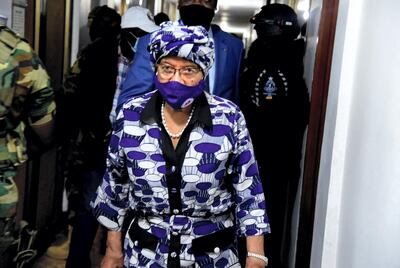
"We strongly recommend that high-income countries with a pipeline for adequate coverage of their populations should, alongside their own scale-up, commit to providing the 90 low and middle-income countries, covered by the Covax advanced market commitment, at least one billion doses, no later than September 1, and to increase that to a total of two billion by mid-next year."
The panel said the pandemic should have been declared earlier, at least on January 22. When the realisation did come among countries, there was a damaging free-for-all response.
"What followed then was a winner-takes-all scramble for PPE [personal protective equipment] and therapeutics globally, health workers were tested to their limits, and the rates of infection, illness and death soared and continue to do so.
"There are countries which devaluated and debunked the science, denied the severity of the disease, delayed responding, and with the impact of sowing distrust among their citizens this has had deadly consequences. This has been compounded by a lack of global leadership and co-ordination of geopolitical tensions and nationalism weakening the multilateral system, which should act to keep the world safe. Overall the pandemic is forecast to have a $22 trillion impact on the world economy by 2025 and as the pandemic has raged the most vulnerable people have suffered the most."
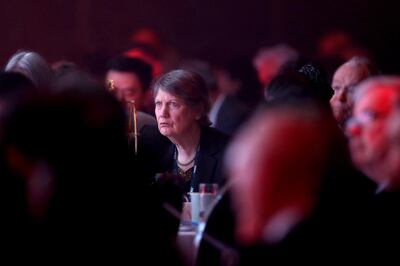
It was the opposite of the recommended approach of the Global Preparedness Monitoring Board, that “national leaders and leaders of international organisations and other stakeholders take early decisive action based on science, evidence and best practice when confronted with health emergencies".
"They discourage the politicisation of measures to protect public health, ensure social protection and promote national unity and global solidarity,” the panel said.
Ms Johnson Sirleaf also backed a waiver on intellectual property rights on vaccine manufacturing beyond licensing agreements, something that has been proposed at the World Trade Organisation.
"We call for WHO and WTO to convene the major vaccine-producing countries and manufacturers to get agreement on voluntary licensing and technology transfer agreements, and to do so now," she said. "If actions do not occur within three months, a waiver of intellectual property rights under the agreement on trade related aspects of intellectual property rights should come into force, immediately."
